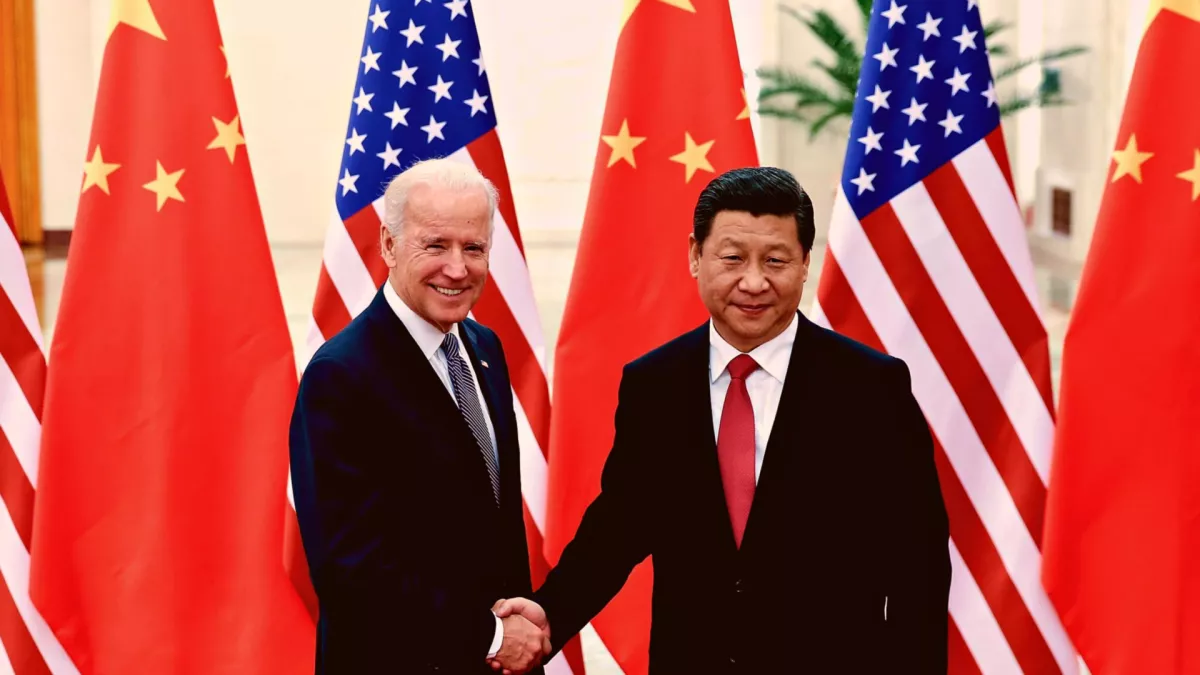Will the US and China evade direct confrontation? Dueling superpowers
On October 16, in his message to the participants of the National Committee on US-China Relations, Chinese President Xi Jinping highly praised the “unremitting efforts” of the organization in promoting exchanges and cooperation between China and the United States in various fields. He characterized US-China relations as “one of the world's most important bilateral relations, which bear on the well-being of the two peoples and the future of mankind.”
As Xi Jinping specified, China always advocates for the principles of mutual respect, peaceful coexistence, and mutually beneficial cooperation, firmly believing that the successes of Beijing and Washington create “a boost to each other's development rather than a hindrance.” Based on this, China is ready to cooperate with the United States as “partners and friends,” which will benefit not only the two countries but also the whole world, contributing to “more stability and positive energy” on the planet.
Overall, this position has been repeatedly voiced by official Beijing. However, the situation on the US-China track remains, to put it mildly, tense. On October 10, the Chinese Ministry of Foreign Affairs responded to statements from Washington suggesting that China, viewing the current state of the US as a "decline," intends to "assert itself and move Washington off the global stage." These comments were characterized as "remarks steeped in Cold-War and zero-sum mentality and US-style hegemonism," representing yet another "false narrative about ‘China threat’" aimed "to contain and suppress China " the country.
On the other hand, bilateral relations become particularly strained when external forces take steps against China's territorial integrity and sovereignty. In particular, experts point out that just this summer, the US State Department notified of planned deliveries of drones to Taiwan, as well as launch systems, ground control systems, and transportation for weaponry. This included provisions for training personnel, supplying spare parts, and maintenance. In September, the US delivered the first batch of Harpoon anti-ship cruise missiles to Taiwan; that same month, information emerged about the readiness of a US Navy SEAL team to “assist Taiwan in the event of a military confrontation with China.”
Just a few days ago, US President Joe Biden decided to allocate approximately $570 million for arms supplies and military assistance to Taiwan, which the Chinese Ministry of Defense characterized as a move aimed at encouraging supporters of “Taiwan independence.” The term “Taiwan independence” implies war; thus, “attempts to use Taiwan to contain China will inevitably lead to negative consequences.” In this context, on October 10, Beijing imposed sanctions on three American companies and ten US citizens supplying arms to Taiwan.

Following this, the Chinese army conducted military exercises around Taiwan, described as a "stern warning to separatists" and a "legally necessary step aimed at protecting state sovereignty and national unity." Analysts viewed this as a response to a prior statement from Taiwan asserting that Beijing had no right to "represent" the island, as neither side is subordinate to the other. Naturally, in light of the exercises, there were immediate notes of discontent from Washington, with the Pentagon describing the incident as an “irresponsible, disproportionate, and destabilizing” military pressure operation. Bloomberg also did not rule out the possibility of a direct military confrontation between Washington and Beijing. Against this backdrop, the US and Taiwan signed contracts for the supply of about 1,000 kamikaze drones worth nearly $164 million.
However, despite the steps being taken in this direction, which Xi Jinping assessed as a result of a "Cold War mentality," the Chinese Ministry of Foreign Affairs expressed the country's position in such a way that Beijing is "glad to see development and progress in the US." The American discourse about how China perceives global events as a "decline of the US" rather indicates "a lack of confidence." China in no way bets "against the US”, and hopes “the US will not bet against China."
However, while China "is committed to peaceful development and upholding the UN-centered international system and basic norms governing international relations," the US, " the US who is obsessed with the old dream of Cold War, unipolar supremacy, selective approach to international rules," while participating in confrontations involving " exclusive groupings " and camps, which is "the biggest source of instability in international order."
In light of this, the Chinese Ministry of Foreign Affairs advised Washington, which continues its "interference in the internal affairs" of the country, "to stop creating all kinds of new terms to peddle the so-called ‘China threat’,” urging the White House to "return to the rational and practical policy toward China " and engage in "win-win cooperation" with the Chinese side for "sustainable development of bilateral ties."

In harmony with this, Beijing has emphasized the promotion of dialogue and exchange among different civilizations, including the "harmonious coexistence of different religions," from the perspective of the "Buddhist community." It was noted that the Chinese government, encouraging the "religious community to conduct international exchanges on the basis of independence, equality, friendship and mutual respect," supports the participation of the " Chinese Buddhist community in global religious and cultural dialogues."
In light of the ongoing geopolitical turbulence in the world, calls for peace among civilizations must be fundamental to overcoming the crises of wars that threaten global stability. As Azerbaijani President Ilham Aliyev stated, "There is nothing to divide between us. We are all living on the same planet. All people want to live in dignity, in peace, in security, to raise children, to protect their families. All religions advocate for the same values of humanity, mercy, solidarity, peace. Uniting our efforts is what the world needs today."
The appeals from world leaders advocating for inter-civilizational understanding must resonate across every corner of the globe. The only alternative is the wars that continue to undermine our shared home.








